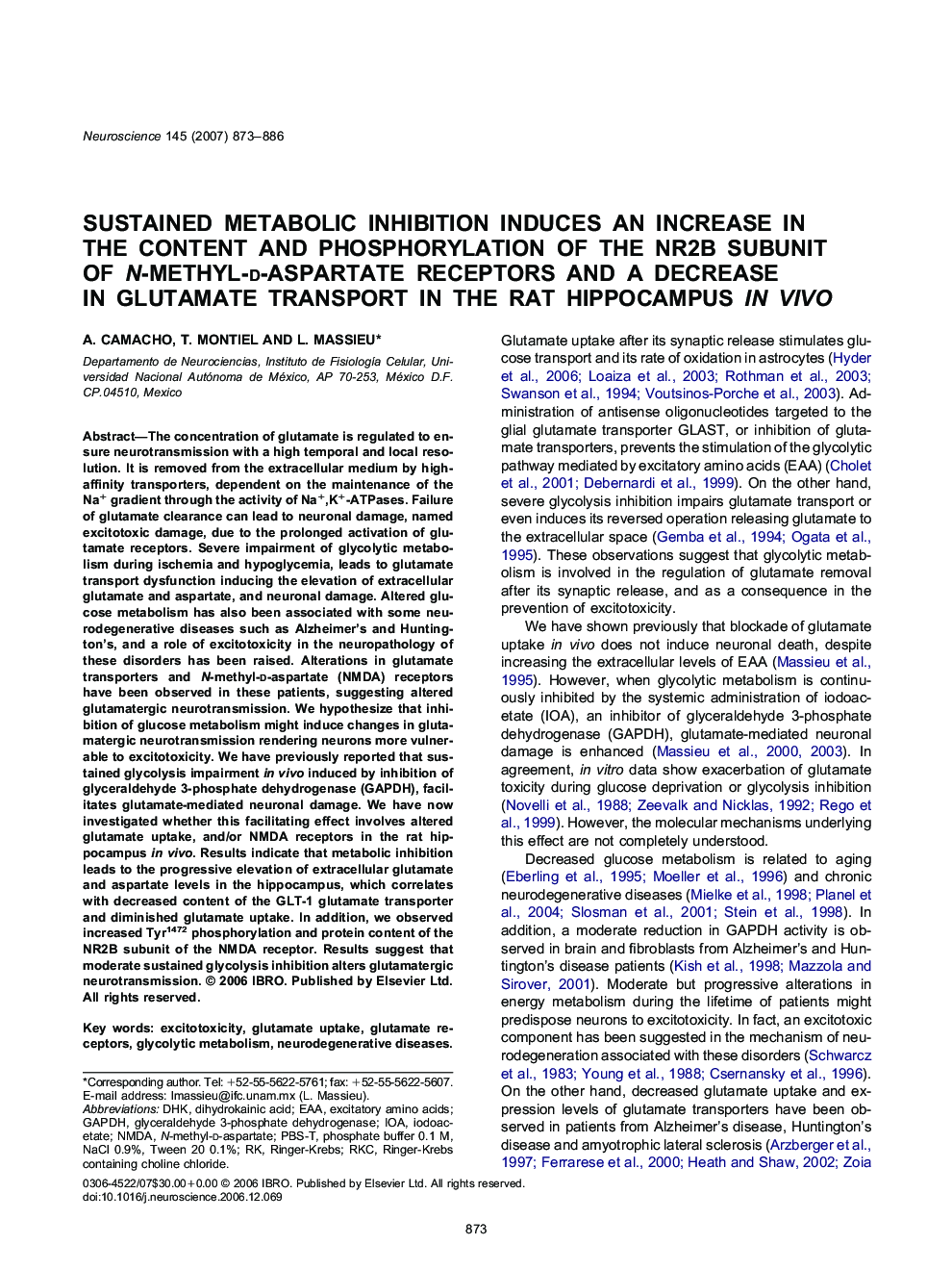| Article ID | Journal | Published Year | Pages | File Type |
|---|---|---|---|---|
| 4342143 | Neuroscience | 2007 | 14 Pages |
Abstract
The concentration of glutamate is regulated to ensure neurotransmission with a high temporal and local resolution. It is removed from the extracellular medium by high-affinity transporters, dependent on the maintenance of the Na+ gradient through the activity of Na+,K+-ATPases. Failure of glutamate clearance can lead to neuronal damage, named excitotoxic damage, due to the prolonged activation of glutamate receptors. Severe impairment of glycolytic metabolism during ischemia and hypoglycemia, leads to glutamate transport dysfunction inducing the elevation of extracellular glutamate and aspartate, and neuronal damage. Altered glucose metabolism has also been associated with some neurodegenerative diseases such as Alzheimer's and Huntington's, and a role of excitotoxicity in the neuropathology of these disorders has been raised. Alterations in glutamate transporters and N-methyl-d-aspartate (NMDA) receptors have been observed in these patients, suggesting altered glutamatergic neurotransmission. We hypothesize that inhibition of glucose metabolism might induce changes in glutamatergic neurotransmission rendering neurons more vulnerable to excitotoxicity. We have previously reported that sustained glycolysis impairment in vivo induced by inhibition of glyceraldehyde 3-phosphate dehydrogenase (GAPDH), facilitates glutamate-mediated neuronal damage. We have now investigated whether this facilitating effect involves altered glutamate uptake, and/or NMDA receptors in the rat hippocampus in vivo. Results indicate that metabolic inhibition leads to the progressive elevation of extracellular glutamate and aspartate levels in the hippocampus, which correlates with decreased content of the GLT-1 glutamate transporter and diminished glutamate uptake. In addition, we observed increased Tyr1472 phosphorylation and protein content of the NR2B subunit of the NMDA receptor. Results suggest that moderate sustained glycolysis inhibition alters glutamatergic neurotransmission.
Keywords
Related Topics
Life Sciences
Neuroscience
Neuroscience (General)
Authors
A. Camacho, T. Montiel, L. Massieu,
